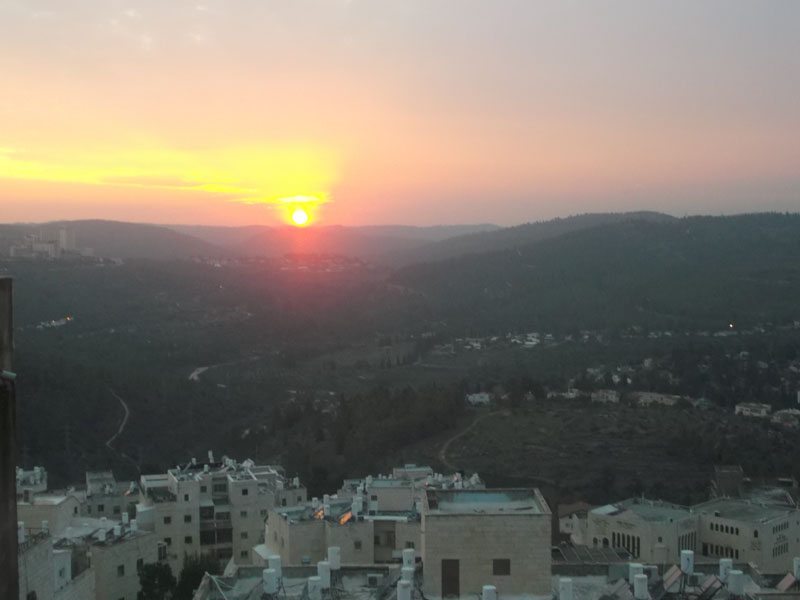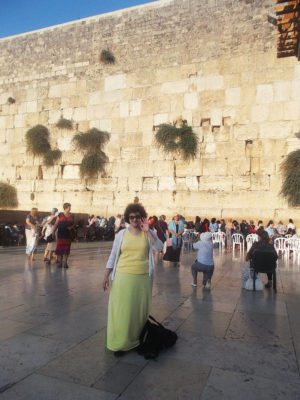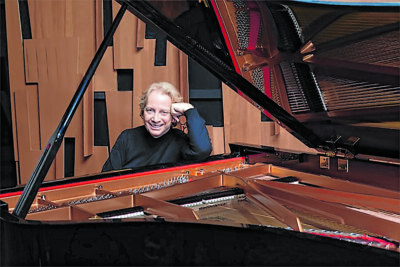 Before arriving in Har-Nof, a neighborhood in Jerusalem, there were a few terms I needed to acquaint myself with. The first is Frum. When I went to Israel, I was catapulting myself into the heart of Frum culture. So, what is Frum? There are 613 rules of the Jewish religion, and being Frum means following them all.
Before arriving in Har-Nof, a neighborhood in Jerusalem, there were a few terms I needed to acquaint myself with. The first is Frum. When I went to Israel, I was catapulting myself into the heart of Frum culture. So, what is Frum? There are 613 rules of the Jewish religion, and being Frum means following them all.
I knew this, but knowing something and experiencing it are two very different things. Like you might know that a neighborhood is called Har-Nof, and “Har” means mountain in Hebrew. You might know you have to land at an airport in Tel-Aviv is because Jerusalem is too mountainous for an airport. However, that does not prepare you for climbing 157 stairs every morning to get to school. That’s what I had to do, along with all the residents of my dorm. We had to climb up every day, rain or shine. Sometimes we were met by a black stray cat that one of my dorm mates named Mr. Buggers for his obvious mucus problems. He liked to block our way up the stairs, wanting food and affection like so many of his fellow Israeli strays. Israel is a land overflowing with stray cats. The locals jump away from them, having been brought up to believe they are diseased and dangerous—the first of which is probably true. Despite their aversion to cats, Israelis have no problems with the daily trek up and around winding stairways. The locals, particularly the children, could just zip up those stairs, climbing mountains like they were nothing. For me, it was a challenge every day. It was just a part of their everyday life—something that after four months, I still could not understand.
Learning to be Frum and get along in Frum Israel was also an uphill climb. I started out with the best intentions, but found I was much more uneducated than I thought. I knew I needed to cover up and dress modestly, but I spent over a month wearing what I thought was an appropriate shirt and sweater before someone thought to point out to me that my neckline was too low. I was introduced to the shell, a long-sleeved, high-necked undershirt that makes almost any outfit instantly tznius. I also learned what the word “tznius” means: to be modest and respectful of yourself, others and god.
I learned a lot of new terms and ideas. I was there to study Judaism, and study I did. I learned the history of how the prayer books were written, and how to compose a proper prayer. I learned things about keeping Shabbat, something I thought I understood pretty well already. I learned what it was like to walk to a family for a Shabbat meal and to be able to walk on the street because all the cars just stopped. They may drive a little crazy in Israel, but come Saturday, in Jerusalem, you can walk around almost any street without fear of being run over. The walks are long, and the climbs are usually uphill, either going to, or back from the house you are staying at for a meal.
 What a culture. What an amazing idea that a random family is happy to host a bunch of strangers for a meal just because the strangers are Jewish and it’s Shabbat. People you have never met, who have no reason to trust you or like you, open up their homes to you and feed you. These people talk to you about your life, asking questions as though they are truly interested in you and your history. They include you in the rituals of their Shabbat meals, which vary from family to family. Usually there is singing, and sometimes there is homemade paerve whiskey-flavored ice cream. And there are stories. Jews from all over have immigrated to Israel. Some families are from America, some are from Canada, others from Britain, Australia, Russia, and of course, some are native to Israel. Their backgrounds and stories are fascinating, and they are generally happy to share them. While you are being educated on these varying cultures, the Jewish culture is omnipresent. These families are everything you expect from a Jewish family, and so much more.
What a culture. What an amazing idea that a random family is happy to host a bunch of strangers for a meal just because the strangers are Jewish and it’s Shabbat. People you have never met, who have no reason to trust you or like you, open up their homes to you and feed you. These people talk to you about your life, asking questions as though they are truly interested in you and your history. They include you in the rituals of their Shabbat meals, which vary from family to family. Usually there is singing, and sometimes there is homemade paerve whiskey-flavored ice cream. And there are stories. Jews from all over have immigrated to Israel. Some families are from America, some are from Canada, others from Britain, Australia, Russia, and of course, some are native to Israel. Their backgrounds and stories are fascinating, and they are generally happy to share them. While you are being educated on these varying cultures, the Jewish culture is omnipresent. These families are everything you expect from a Jewish family, and so much more.
All Jews are family and Israel is a place where that family has come together. Sometimes it’s a little dysfunctional, but what family isn’t? I got my first taste of Israel through birthright, a beautiful program that allows anybody of Jewish ancestry to travel to Israel basically for free and experience the country over the course of 10 days. It’s essentially a crash course. They have to fit a whole country into a minute time span, which is no easy feat. Participants barely have time to sleep or feel homesick. They experience climbing Masada and the nightlife of Tel Aviv. It is a wonderful opportunity, but it is just a taste. The 10 days of birthright is the little pink sample spoon of 31 Baskin Robbins flavors. It’s free and a little bit of everything, but the idea is to get you to order three scoops in a waffle cone. Programs like Masa Israel exist to allow people to go intern or study in Israel and get the full “I lived there” experience. Really, they want you to get a lifetime supply of that ice cream and move to Israel. It’s not a bad option.
Living in Israel is hard; you see that when you live there for four months. It’s not as “comfortable” as America. But it has its advantages. I have decided not to take up permanent residence at this point in my life. Still, I wouldn’t discourage someone from going. I grew a lot in those four months, and I don’t regret a single step.
Leora Waltuch is a writer from Bethel, CT.
























